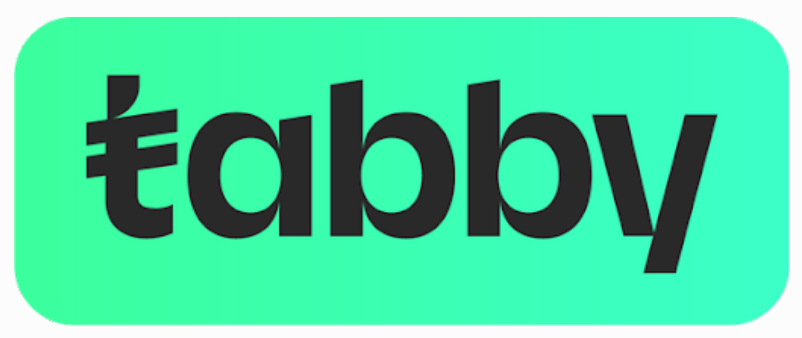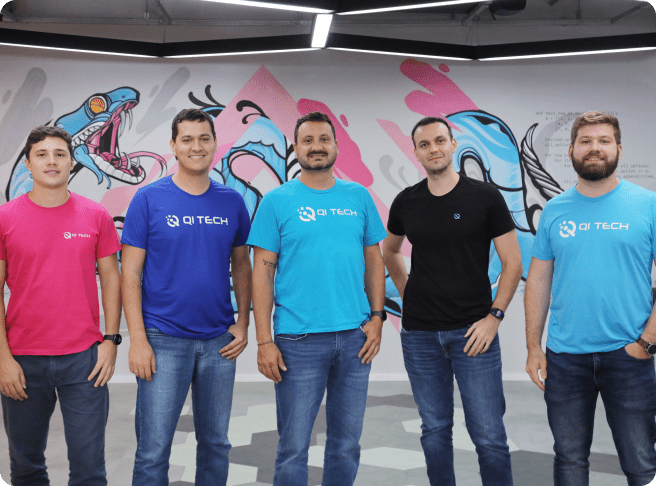In a significant boost to the Middle East’s burgeoning fintech scene, Tabby—a Saudi-focused “buy now, pay later” (BNPL) provider—has secured $160 million in a Series E funding round. The latest infusion of capital underscores the company’s rapid ascent in the Gulf Cooperation Council (GCC) market and heightens speculation about an impending initial public offering (IPO). According to multiple media outlets, Tabby’s leadership has begun preliminary discussions with potential advisors to explore listing options, possibly on the Saudi Stock Exchange (Tadawul).
Regarded as one of the region’s most prominent BNPL players, Tabby’s move reflects a broader surge in fintech innovation across Saudi Arabia—driven by high smartphone penetration, a youthful consumer base, and government initiatives supportive of digital finance. Against this backdrop, the new funding round positions Tabby to scale its product offerings, deepen ties with regional merchants, and further solidify its foothold in an increasingly competitive market.
Table of Contents
ToggleBackground on Tabby
Founded in 2019 by Hosam Arab (formerly a co-founder of fashion e-commerce platform Namshi), Tabby emerged as a frontrunner in the Middle Eastern BNPL space by offering consumers the flexibility to split payments across multiple installments without incurring interest or hidden fees. Initially focused on Saudi Arabia and the United Arab Emirates (UAE), Tabby quickly gained traction through partnerships with popular retail chains, fashion brands, and online marketplaces.
Prior to the Series E announcement, Tabby had secured substantial backing from regional and global investors—including STV, Arbor Ventures, Mubadala, and Sequoia Capital India—bringing its total funding to over $275 million in equity and debt combined (by various estimates). The company’s impressive growth trajectory has been bolstered by a rising demand for alternative payment methods in the GCC region, where a young, tech-savvy demographic has proven eager to adopt BNPL solutions both online and in-store.
With Saudi Arabia’s Vision 2030 pushing for more fintech innovation and diversification away from oil-based revenue, Tabby’s success story epitomizes a new wave of homegrown startups poised to reshape the region’s financial services landscape. Now, with $160 million in fresh capital on hand, industry observers note that Tabby may be on track to become one of the first Saudi-focused fintechs to debut on the public market—potentially setting a precedent for similar ventures in the coming years.
Details of the Series E Funding
According to multiple reports, Tabby secured $160 million in its Series E round, pushing its total funding (equity and debt) well beyond the $275 million mark it had previously amassed through earlier rounds. Although Tabby has not publicly confirmed its exact valuation, insiders suggest that this injection of capital places the company at a significantly higher valuation than its last disclosed figure.
- Lead Investors & Participants: While Tabby has yet to release a complete list of Series E backers, existing investors—such as STV, Sequoia Capital India, Arbor Ventures, and Mubadala—reportedly participated. Several new institutional investors may also have joined, reflecting continued global interest in Middle Eastern fintech opportunities.
- Use of Proceeds:
- Market Expansion: Sources highlight Tabby’s plans to deepen its presence in core GCC markets—Saudi Arabia, the UAE, and Kuwait—while exploring entry into other high-potential regions in the Middle East or North Africa.
- Product Development: A portion of the funding is slated for enhancing Tabby’s BNPL platform and launching adjacent financial products, potentially including consumer lending or loyalty-driven payment solutions.
- Scaling Operations: Tabby aims to ramp up hiring, strengthen infrastructure, and fortify partnerships with major retail groups, both online and offline.
- Strategic Significance: With growing competition from other BNPL providers and digital payment platforms, this sizable Series E underscores Tabby’s intent to remain the leading BNPL service in Saudi Arabia and the surrounding region.

BNPL & Fintech Landscape in MENA
The success of Tabby’s Series E is set against the backdrop of a surging fintech ecosystem in the Middle East and North Africa (MENA). Several factors contribute to BNPL’s rapid adoption:
- Demographic Tailwinds: A predominantly young, tech-savvy population in Saudi Arabia and neighboring GCC states has driven strong demand for digital financial services. BNPL resonates with a generation that values ease, speed, and flexible spending.
- E-Commerce Boom: High internet and smartphone penetration, combined with rising digital literacy, has spurred double-digit growth in regional e-commerce. Consumers increasingly opt for interest-free installment plans at checkout, fueling BNPL usage.
- Government Initiatives & Regulatory Support:
- Saudi Vision 2030: The Kingdom’s ambitious economic diversification plan prioritizes fintech innovation, providing incentives and regulatory frameworks conducive to digital payment solutions.
- UAE & Beyond: Similarly, the UAE government and regulators have embraced financial technology, encouraging competition and partnership among startups.
- Growing Competition: Tabby is not alone—rivals like Tamara (Saudi Arabia) and Postpay (UAE) have also attracted significant capital. However, Tabby’s swift user growth and merchant onboarding have helped it stand out, particularly in Saudi Arabia.
- Consumer Preference Shift: Beyond e-commerce, BNPL is increasingly offered in physical retail stores, healthcare providers, and other service sectors, accelerating mainstream adoption.
Rumored IPO Plans
Amid Tabby’s rising profile, speculation about a forthcoming initial public offering (IPO) has gained momentum, with several media outlets citing unnamed sources or comments from investors:
- Potential Listing Venues:
- Saudi Stock Exchange (Tadawul): Given Tabby’s strong Saudi roots, Tadawul is frequently mentioned as the most likely venue. Saudi Arabia has become a hotbed for tech listings, hosting a number of sizable IPOs in recent years.
- International Exchanges: Some analysts suggest Tabby might explore a dual listing—either in the UAE or beyond—to tap into global investor bases.
- Timing & Readiness:
- While no official statements have been made by Tabby’s leadership, the company’s Series E injection has fueled assumptions that Tabby is bolstering its balance sheet and operational capabilities ahead of a public listing.
- Strategic Motivations:
- Brand Visibility & Credibility: An IPO could enhance Tabby’s position as a trusted consumer finance brand, appealing to both regional and international merchants.
- Capital for Expansion: Listing would open up new avenues of capital, supporting continued product development and market penetration.
- Market Leadership: As one of the largest BNPL players in MENA, going public might solidify Tabby’s reputation and spur more consolidations or partnerships within the region’s fintech space.
Despite the flurry of rumors, Tabby has yet to confirm or deny any specific IPO timeline. Nevertheless, the company’s consistent growth and significant capital raises have cemented its role as a prime candidate for Saudi Arabia’s fintech “firsts.”
Quotes & Commentary
Hosam Arab (Co-Founder & CEO, Tabby)
“We’re building a new way for consumers in the Middle East to shop, earn, and save—one that puts their financial well-being first. With this latest round of funding, we’re excited to expand our reach in Saudi Arabia and beyond,”
– Hosam Arab, as quoted in multiple media reports
Arab’s comments, often cited across various interviews and press releases, emphasize Tabby’s core mission of customer empowerment through interest-free, flexible payment options. He has repeatedly highlighted the “incredible momentum” of BNPL adoption in the region and the importance of maintaining consumer trust.
Investor Perspective
Several venture capital firms backing Tabby have spoken positively about the company’s growth trajectory. For instance, a representative from STV—one of Tabby’s early major investors—told Arabian Business:
“Tabby has quickly proven that the Middle East is ready for modern, technology-driven financial solutions. Their execution and partnership with leading merchants in Saudi Arabia, the UAE, and beyond highlight a significant opportunity in BNPL and broader fintech services.”
Industry Analysts
Regional fintech analysts see Tabby’s rise as a bellwether for the expanding BNPL market in the Middle East. According to a recent Wamda report, the Kingdom’s youthful population, coupled with robust government support for digital transformation, positions Saudi Arabia as a “prime launchpad” for fintech solutions. One analyst noted: “Tabby’s sustained funding success sends a clear message: global investors see the MENA region’s fintech potential, and local players are poised to gain considerable market share if they can scale effectively.“
Challenges & Considerations
- Regulatory Landscape
- Although Saudi Arabia has embraced fintech innovation, authorities remain cautious regarding consumer debt and loan defaults. BNPL providers, including Tabby, could face additional scrutiny or licensing requirements as usage grows.
- Consumer Debt Concerns
- Interest-free installment models can mask repayment risks if consumers overextend themselves. BNPL players must balance ease of access with responsible lending measures, like credit checks and spending limits.
- Intensifying Competition
- Tabby competes with other regional BNPL services, such as Tamara and Postpay. Continued investment in user experience, merchant relationships, and customer loyalty is crucial to retaining market leadership.
- IPO Market Volatility
- Global market conditions and geopolitical factors can influence IPO timelines. While Tadawul has seen high-profile listings, timing will be critical to secure favorable valuations and investor demand.
- Sustaining Growth Post-IPO
- Should Tabby opt for a public listing, it will face heightened expectations regarding revenue growth, profitability, and corporate governance. Meeting these benchmarks is essential to maintaining investor confidence.
Future Outlook
Geographic Expansion
- Regional Dominance: In the near term, Tabby’s focus remains on solidifying its position in Saudi Arabia, the UAE, Kuwait, and other high-growth GCC markets.
- Beyond GCC: Industry chatter suggests Tabby could explore North African markets, such as Egypt or Morocco, where rising e-commerce and digital payment adoption offer fresh growth opportunities.
Product Innovation
- Enhanced BNPL Offerings: Tabby aims to roll out more in-store solutions and refine its platform with loyalty or rewards features, further embedding BNPL in daily consumer shopping habits.
Broader Financial Products: As part of its roadmap, Tabby may leverage its technology and user base to introduce complementary financial services, potentially in partnership with local banks or fintechs.
Conclusion
Tabby’s $160 million Series E marks a defining moment for both the company and the wider Middle East fintech ecosystem. Anchored in Saudi Arabia’s rapidly modernizing financial landscape, Tabby epitomizes the region’s appetite for innovative, user-friendly digital solutions—a trend that government policies like Vision 2030 have accelerated. The rumored IPO, while still unconfirmed, adds another layer of intrigue to Tabby’s growth story, hinting at a future where homegrown fintech champions could vie for global attention in public markets.
As the BNPL space matures, Tabby’s success will likely hinge on balancing rapid expansion with regulatory compliance and responsible lending practices. For observers of the MENA startup scene, the company’s latest funding round underscores rising global confidence in the region’s tech potential—setting the stage for further milestones in fintech, e-commerce, and beyond.












